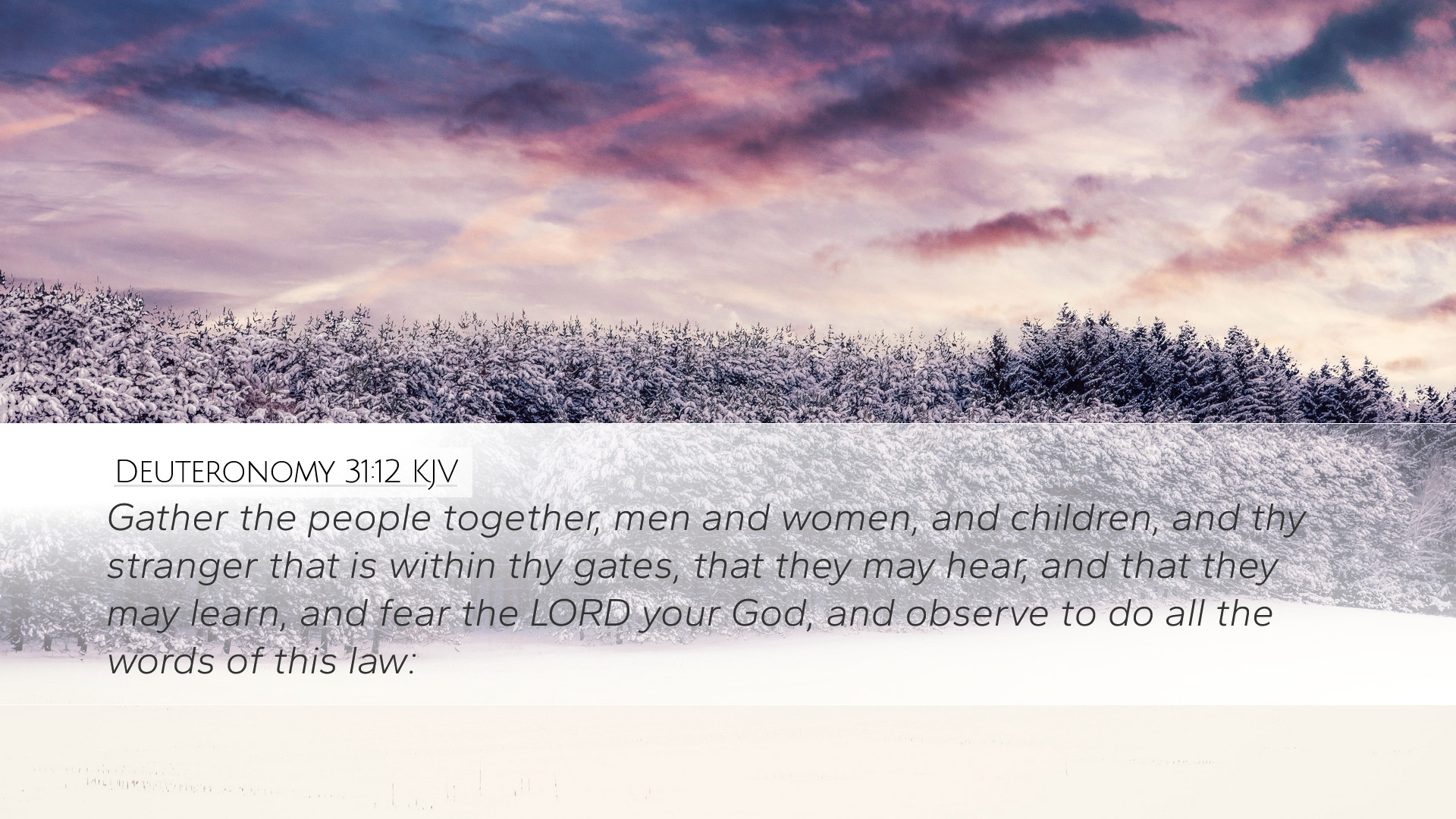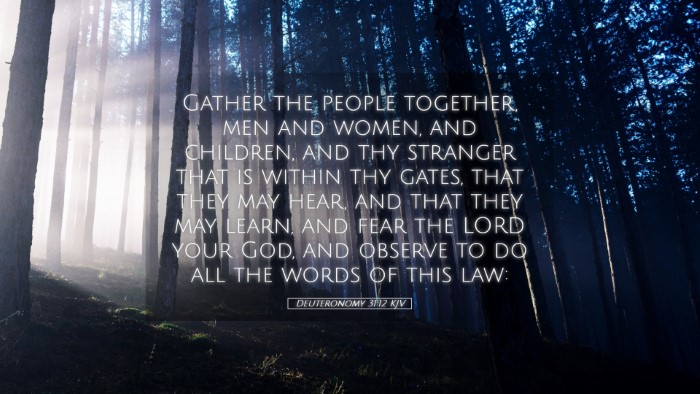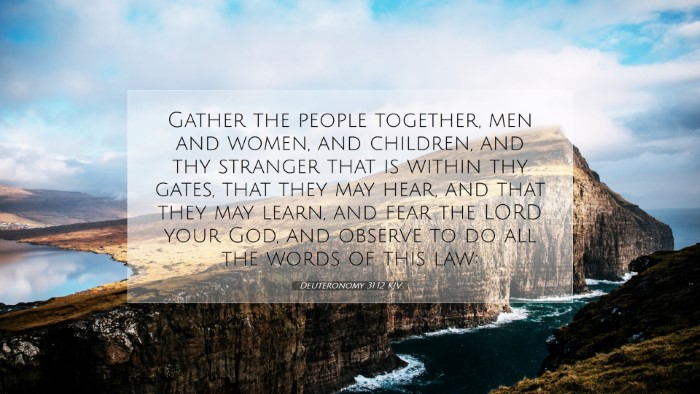Commentary on Deuteronomy 31:12
Deuteronomy 31:12 states: "Gather the people together, men and women and children, and the sojourner within your towns, that they may hear and learn to fear the LORD your God, and be careful to do all the words of this law."
Introduction
This verse encapsulates a critical moment in the life of the Israelite community as Moses prepares to transition leadership to Joshua. It emphasizes communal engagement with God’s Word as essential for spiritual health and covenant fidelity. This commentary draws upon the insights of public domain scholars such as Matthew Henry, Albert Barnes, and Adam Clarke, focusing on the importance of teaching, remembrance, and fear of the LORD within the community.
Moses' Call to Gather
Matthew Henry notes that the directive to "gather the people" signifies the importance of unity in worship and instruction. This gathering is to include:
- Men and Women: Both genders are to participate in the hearing of the Law, emphasizing that the responsibility to understand God’s Word is universal.
- Children: Including children in this meeting is a demonstration of the need to educate future generations in the faith.
- Sojourners: The inclusion of non-Israelites (sojourners) reflects the community’s openness and the universal applicability of God's Law.
Albert Barnes emphasizes that this gathering is not merely for formalistic reasons, but rather for an active engagement with God’s commandments. The people are called to learn and to fear the LORD, suggesting that hearing must lead to action.
The Purpose of the Gathering
The purpose outlined in this verse is threefold:
- Hear: The act of hearing God’s Word should lead to understanding. Adam Clarke suggests that hearing has both an auditory and an experiential component—the Law should be reflected upon and implemented in daily life.
- Learn to Fear the LORD: The fear of the LORD represents a deep respect and reverence for God, which is foundational for a virtuous life. This emphasis on fear is echoed throughout Scripture as integral to true wisdom (Proverbs 1:7). Matthew Henry expounds that this fear encompasses both an awareness of God’s great power and a recognition of His holiness.
- Be Careful to Do All the Words of this Law: The Law is not just to be heard but actively obeyed. Barnes comments on the significance of diligence in observing every aspect of the Law. This obedience is an expression of love towards God and commitment to the covenant relationship.
Community Responsibility
Clarke points out that this charge to the community involves accountability. Each member has a role in ensuring that the teachings are upheld and passed on. There is a communal responsibility not only to hear the Law but also to encourage one another in its application. This mirrors the church's responsibility today in fostering environments where God’s Word is studied and applied.
Implications for Today's Church
The application of Deuteronomy 31:12 is significant for contemporary Christianity. As pastors, students, theologians, and Bible scholars reflect on this text, several key lessons emerge:
- The Importance of Community in Worship: Just as Moses gathered the people, church leaders today are challenged to create communities that prioritize collective worship and study of Scripture.
- Inclusion in Teaching: There is a great need to target all demographics—men, women, children, and newcomers—through inclusive teaching practices that respect the diversity of the congregation.
- Recognizing God’s Sovereignty: The fear of the LORD should permeate today’s understanding of God—a reverent acknowledgment of His power and authority encourages devotion and moral living.
- Active Engagement with Scripture: Like the original audience, modern believers are encouraged not only to hear the Word but also to learn it thoroughly and apply it diligently, resulting in transformative action in their lives.
Conclusion
In conclusion, Deuteronomy 31:12 serves as a poignant reminder of the vital role that Scripture plays in forming the identity and practice of God’s people. The gathering of the community to hear, learn, and obey the Law highlights the connection between understanding and action—a principle that reverberates through the ages. Insights from public domain commentaries enrich our understanding of this text, urging us to embrace our roles as learners and doers of God's Word within our own faith communities.


